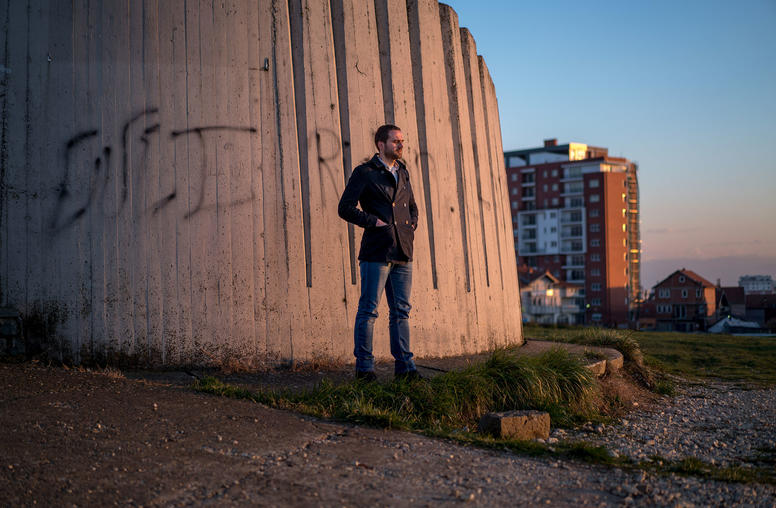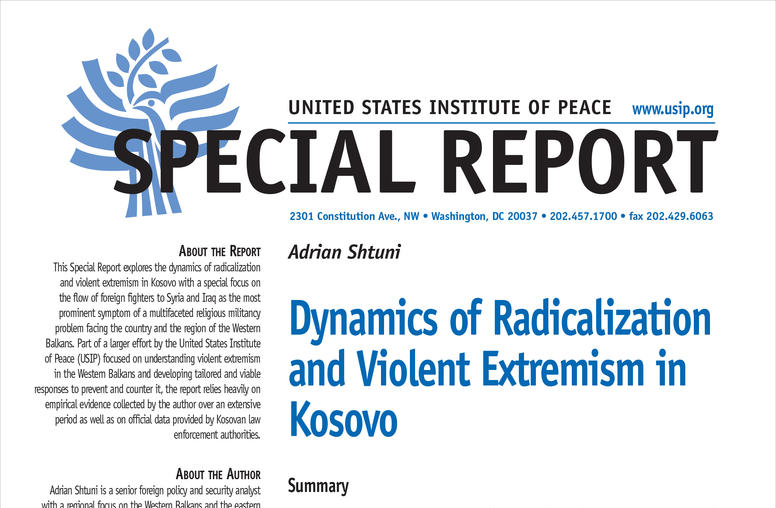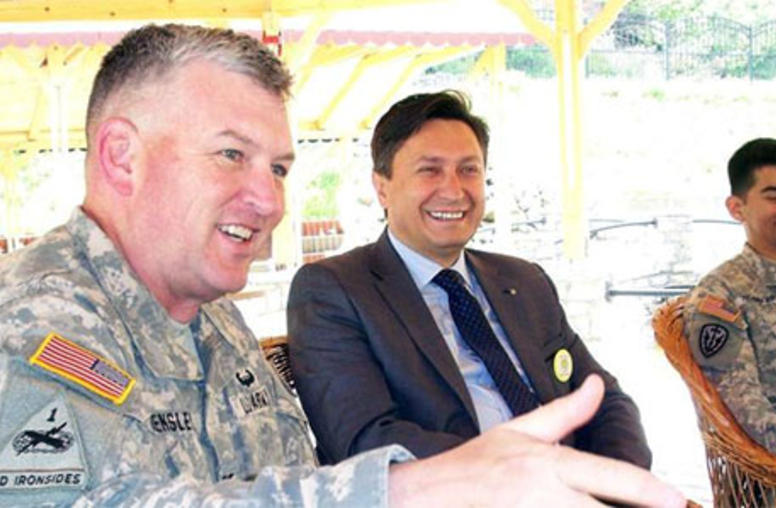Program Officers Ted Feifer and Anne Henderson conducted negotiations and diplomatic skills training workshops for the Organization for Security and Cooperation in Europe (OSCE) Mission in Kosovo at field offices in Prizren December 3-5 and in Gjilan December 8-10, 2003.
Program Officers Ted Feifer and Anne Henderson conducted negotiations and diplomatic skills training workshops for the Organization for Security and Cooperation in Europe (OSCE) Mission in Kosovo at field offices in Prizren December 3-5 and in Gjilan December 8-10, 2003. This was the first time we had taken our training directly to the missions´ field offices, with our goal to make it easier for field staff to attend. There were 17 participants (14 national and 4 international staff) at the Prizen workshop, and 28 participants (18 national and 10 international staff) at the Gjilan workshop. The national staff reflected the spectrum of Kosovo´s population. Their responsibilities included democratization, human rights, elections and human resources. Our training goals were to increase participants´ effectiveness through the use of problem-solving approaches; strengthen their communication, negotiation and third party skills; and share experiences and lessons learned in the prevention, management and resolution of conflicts.
party skills; and share experiences and lessons learned in the prevention, management and resolution of conflicts.
Participants were introduced to the core concepts of communication, negotiation, and the roles of a third party, and applied their skills in a constantly more challenging series of exercises and simulations. They explored the utility of structured approaches to problem solving in field missions, applying their conflict management and resolution skills in an exercise using the 1995 Crimea conflict as their scenario. A village conflict provided opportunities to strengthen mediation skills, while a complex multiparty mediation simulation helped them practice the broad range of skills developed in the workshop. One participant noted to us that, "The workshop was extremely useful in the context OSCE is working, helping us to refresh our knowledge, to share experience, to get additional skill." Another participant also addressed the relevance of the training: "Working with different minority and majority groups in Prizren region, I found this training very useful as a tool for improvement in my job." Yet another participant called it: "One of the best workshops I´ve ever attended."



